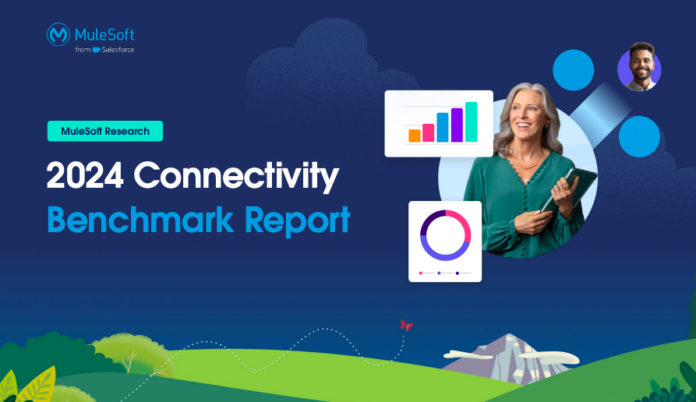Six in every seven (86%) IT leaders in the Asia-Pacific region expect AI to increase developer productivity at their organisations over the next three years, according to research from Salesforce.
The company said this is a welcome relief as IT leaders simultaneously report a 39% increase in IT requests in the last year alone.
However, 69% also say their organisation is ill-equipped to harmonise data systems to fully leverage AI, and is impeding the transition and further heightening the strain on IT teams.
For the latest annual Connectivity Benchmark Report, MuleSoft surveyed 1,050 CIOs and IT decision makers around the world, including 400 in APAC.
Adding to the concerns mentioned above, 98% of IT teams in APAC today report experiencing at least some degree of challenge with their digital transformation efforts, with 34% citing data silos and 77% grappling with systems that are overly dependent on one another.
Within APAC, the report shows that IT leaders expect a 89% increase in the average number of LLMs (large language models) they’ll use over the next three years.
This is significantly greater than the 69% increase expected globally – with 88% of organisations reporting they already use multiple predictive and generative AI models today.
Also, while AI drives efficiency and productivity, it is dependent on integrated data. However, only an estimated average of 28% of apps within APAC organisations are connected and 82% of IT leaders report that integration challenges are hindering digital transformation within their organisations.
Further, security and trust remain as barriers to adoption, as 64% of IT leaders are concerned with ethical AI usage and adoption.
The study also found that data silos are significant barriers to progress and business value, with 82% of APAC respondents reporting that silos are hindering digital transformation efforts.
As a result, there is a greater need for better integration to unify all structured and unstructured business data to power and deploy trusted, relevant AI across all business functions.
In APAC, 77% of IT leaders find their current infrastructure overly interdependent, with 69% reporting their organisation is not equipped to harmonise their data systems to leverage AI technologies – notably higher than the United States (55%) and Europe (60%).
Almost three quarters (74%) of organisations say they’re struggling with integrating data insights into user experiences.
Only 26% of organisations report providing a completely connected user experience across all channels.
IT teams are often responsible for automation adoption, but remain cautious to allow business stakeholders to self-serve — only 25% of IT leaders in APAC report that their strategy to help non-technical business users integrate apps and data sources via APIs is up to date.
At the same time, a skills gap within IT teams poses a hurdle. Closing this gap through strategic collaboration and upskilling is essential for organisations to best use automation for both innovation and efficiency.
In APAC, IT teams are struggling to integrate efficiently, as 98% report facing challenges regarding digital transformation. Skills gaps and compliance concerns top the list of IT challenges.
Within the region, 86% of IT Leaders expect AI to boost developer productivity.
Globally, IT teams are increasingly adopting automation to manage high demands, with one in three teams now preferring RPA, a notable rise from 13% in 2021 to 31% in 2023.
















